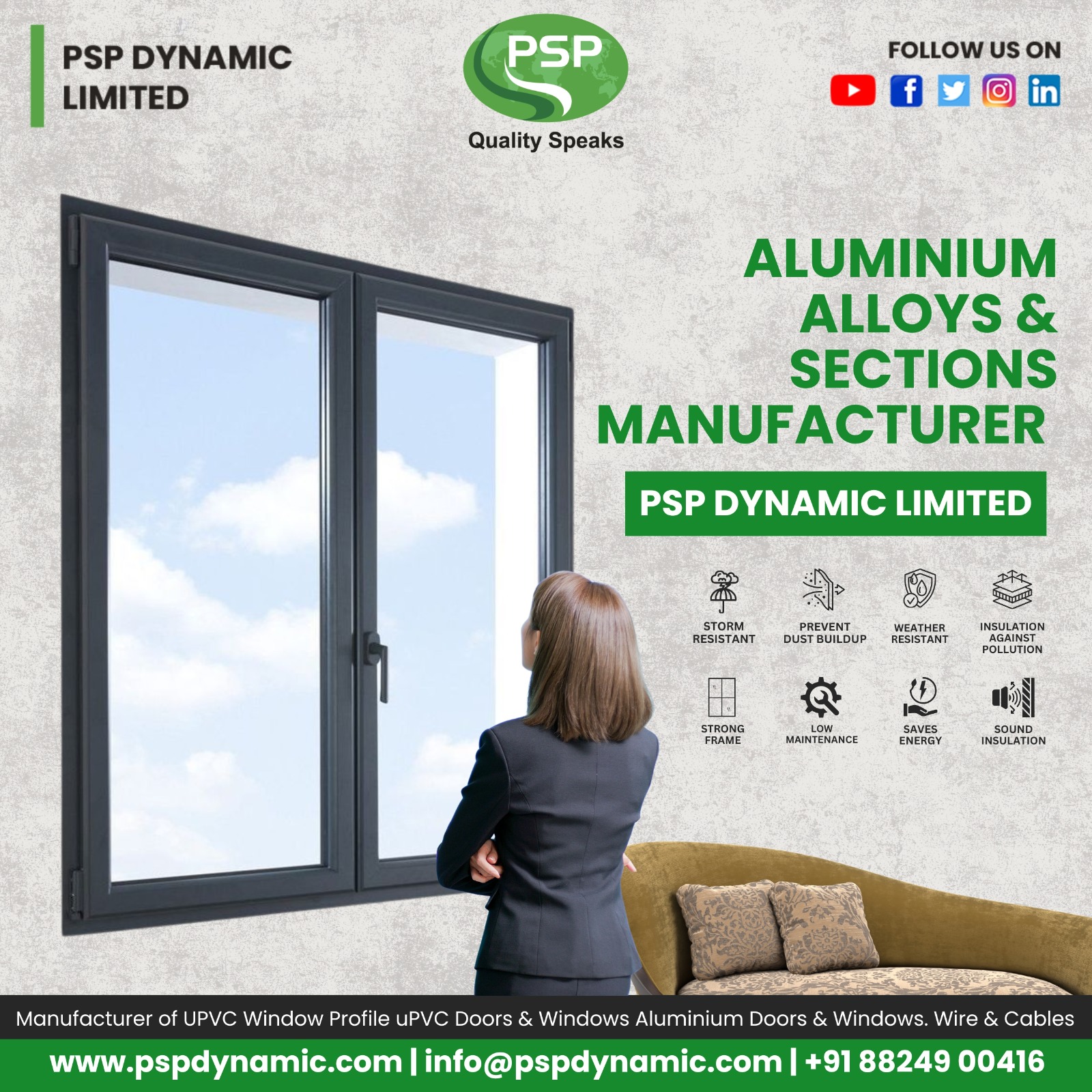
In the world of modern construction, infrastructure, automotive, and industrial design, aluminium has become more than just a material — it’s a foundation. Its strength-to-weight ratio, resistance to corrosion, and high malleability make it a top choice across countless industries.
But while aluminium in its raw form holds promise, it’s the extrusion and alloying process that turns this silvery metal into architectural frameworks, vehicle components, window frames, and more. That’s where aluminium alloys and sections come into play.
This blog explores how aluminium alloys are crafted, why aluminium sections matter, and what makes a great aluminium extrusion manufacturer stand out in today's demanding market.
Aluminium is the third most abundant element in the Earth's crust, yet it's one of the most valuable metals due to its versatility. When alloyed with other elements like magnesium, silicon, copper, or zinc, its properties can be enhanced to meet specific structural or industrial needs.
But it’s not just about the chemistry. It’s about how the aluminium is shaped and treated — through extrusion — that defines its practical value.
From the sleek lines of architectural facades to the intricate frames used in machinery, aluminium extrusions offer designers and engineers the flexibility to create strong, lightweight components that stand the test of time.
Aluminium alloys are combinations of aluminium with other metals to improve its strength, corrosion resistance, conductivity, or workability. There are two major types of aluminium alloys:
These are mechanically worked through rolling, extrusion, or forging. They’re known for high strength and are used in aerospace, construction, and automotive industries.
These are poured into molds and solidified, often used for intricate parts where high strength isn't the primary concern.
Each alloy is tailored for a specific application — whether it’s bearing heavy structural loads or offering resistance in highly corrosive environments.
Some commonly used aluminium alloys include:
Once aluminium is alloyed, it often goes through extrusion to form what are known as aluminium sections.
Think of extrusion as squeezing toothpaste out of a tube — the aluminium is pushed through a die to form long, uniform shapes such as:
These sections are designed based on the application's strength, aesthetics, and structural needs.
Modern industries rely heavily on precision-crafted aluminium sections for performance and appearance.
Choosing the right aluminium extrusion manufacturer can make or break a project. It’s not just about supplying metal; it’s about consistency, customization, and commitment to quality.
Here’s what separates the best from the rest:
Modern extrusion plants with state-of-the-art equipment ensure dimensional accuracy and consistency. The ability to produce a range of sizes and tolerances is essential.
A reliable manufacturer doesn't just extrude; they control the entire process from sourcing aluminium ingots to alloying. This ensures the properties of the final product are maintained throughout production.
Every industry has its own specifications. A manufacturer that offers custom die creation and flexible production capabilities can support industries from aerospace to interior design.
Aluminium sections must pass rigorous quality standards — not only in appearance but in mechanical and structural integrity. A dependable manufacturer will have in-house labs and testing facilities to meet international benchmarks.
Sustainability is no longer optional. Eco-conscious extrusion companies recycle scrap aluminium, minimize waste, and follow energy-efficient practices, aligning with global environmental goals.
India is rapidly urbanizing. With the push for smarter cities, energy-efficient infrastructure, and world-class transportation, the demand for high-quality aluminium alloys and sections is at an all-time high.
Manufacturers need to not only meet this demand but lead innovation through:
This evolution is already in motion, driven by companies with the vision and capacity to scale sustainably and responsibly.
One such manufacturer, PSP Dynamic, has steadily built a reputation in the Indian market with a focus on quality, precision, and customer satisfaction. Operating from Alwar, Rajasthan, the company combines cutting-edge extrusion technology with a passion for engineering excellence.
As India transitions into a hub for smart manufacturing and green infrastructure, aluminium is poised to be at the center of it all. Its recyclability, strength, and lightness make it ideal for tomorrow’s needs — from electric vehicles and solar panel mounts to space-saving architectural designs.
And while the metal itself holds immense potential, it's the people, processes, and purpose behind it that define its journey.
Manufacturers that can integrate R&D, embrace global quality standards, and maintain client-centric flexibility will define the next decade of industrial growth in India and beyond.
Aluminium extrusion is a process where heated aluminium is forced through a die to create specific shapes or profiles. It’s widely used due to its versatility, allowing for lightweight yet strong components in construction, transport, and industrial applications.
Major industries include construction, automotive, aerospace, railways, electrical, solar, and consumer goods. Each relies on aluminium for its durability, corrosion resistance, and lightweight properties.
Yes, aluminium sections can be fully customized in terms of size, shape, alloy composition, surface finish, and mechanical properties depending on the client's needs and industry standards.
Aluminium is significantly lighter, corrosion-resistant, easier to fabricate, and more recyclable than steel. It’s often preferred in industries where weight and appearance are key.
Absolutely. Aluminium is 100% recyclable without any loss in quality. The energy required to recycle aluminium is only 5% of that needed for primary production, making it one of the most eco-friendly metals available.
Aluminium alloys and sections are no longer just materials — they’re enablers of innovation. Whether you're an architect designing sustainable buildings, an automotive engineer building EVs, or a manufacturer developing industrial systems, aluminium offers unmatched value.
You might like this product!